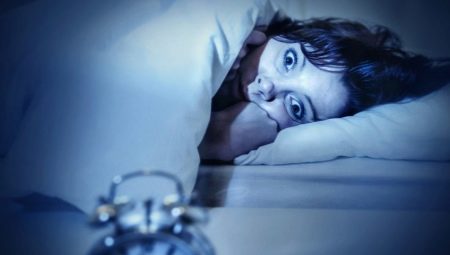In order to lead a full life, a person must sleep adequately. During sleep, the body rests, restores strength and energy reserves, then the most important hormones are produced to ensure the normal functioning of the body. Sleep is a natural need of a person, along with eating, breathing. For most people, falling asleep is not a big deal. But there are people who avoid sleep only because they are afraid of it - these are hypnophobes.
Pathology Features
Pathological fear of sleep is a disease called hypnophobia. This phobia has other terms, such as clinophobia and somnophobia. This mental disorder is manifested by a fear of sleep per se.because in a dream a person is helpless, unable to repel a sudden danger. Hypnophobia is panicky afraid of losing touch with reality, control over what is happening and his own life. Some people with this phobia fear nightmares that could disturb their peace of mind. There are also hypnophobes who do not sleep just because they feel sorry for the time to sleep. But many are afraid to die in a dream, and therefore try to avoid sleep itself.
Fear of the natural need of the human body is considered unnatural from the beginning. The person is in a state of anxiety, he is very worried as the evening approaches, when you need to go to bed.
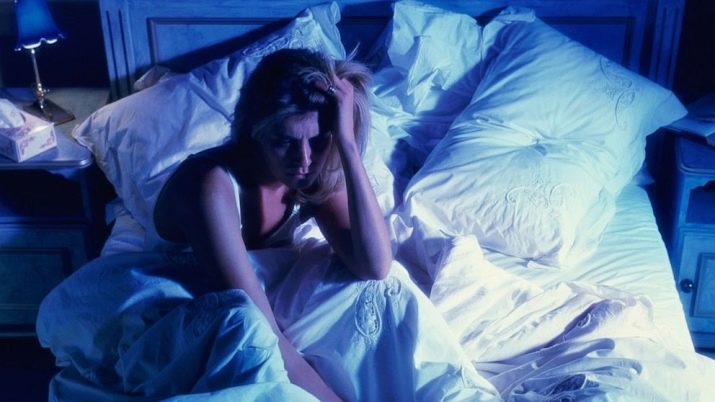
At any time of the day, as soon as the body starts sending signals to the owner about fatigue, fatigue, the hypnophobe begins to feel anxiety, because it is possible that he will have to fall asleep.
True hypnophobia can overwhelm itself with insomnia for years, falling asleep only for short periods of time, when the body already refuses to function in the wakefulness regime. In fact, a person simply “turns off” (the protective mechanism of the brain is triggered). In order not to sleep as long as possible, a person can come up with a lot of "necessary", in his opinion, activities and rituals.
Of all the phobic mental disorders, it is hypnophobia that is considered one of the most painful - people with such a disorder quickly bring themselves to exhaustion, exhaustion, and sometimes even outright insanity. No wonder in the Middle Ages, and then in Nazi concentration camps, there was torture by insomnia, when a person was simply not allowed to fall asleep for several days.
In a mild form, hypnophobia leads to fear of falling asleep, but sooner or later (rather late), a person falls asleep. Sleep lasting 2-3 hours in this case from the moment of falling asleep to the rise does not bring relief, a person wakes up tired, exhausted, irritated. Gradually, he loses interest in life, people, phenomena and events. Malice and aggression begin to prevail in his behavior. Gradually comes complete apathy.
Lack of sleep is fraught with hallucinations (visual, auditory, tactile), panic attacks, decreased vision and hearing, gradually the oppression of the respiratory, cardiovascular, nervous systems. In extremely severe cases, hypnophobia can cause death.
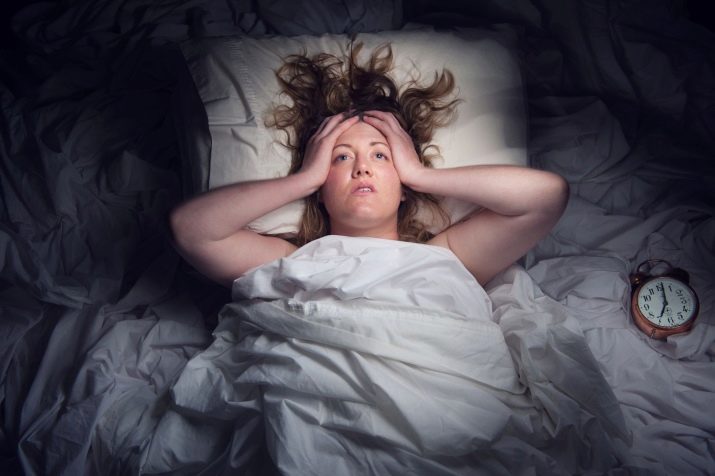
According to data from historical archives, Joseph Stalin suffered from hypnophobia. Then the doctors could not formulate the diagnosis accurately (for obvious reasons, because the doctor also does not want to be shot). Stalin loved and preferred to work at night. He was afraid to die in a dream, and therefore did everything possible to prevent falling asleep. The leader became ill from enormous fatigue, and he eventually fell asleep only after a dose of sleeping pills given by doctors.

Therefore, in many shots of the documentary chronicle, Stalin seems somewhat inhibited.
Causes
The reasons why natural need becomes inadequately unimportant are that we all fear death. To varying degrees, with different frequencies, but the fear of physical and biological death is inherent in everyone. In a hypnophobic, he is irrational, hypertrophied. Outwardly, a person does not control the situation; he is vulnerable. And the fear of going to bed is most often associated with the fear of suffering or dying in a dream - to be killed, strangled, shot, to die due to cardiac arrest, breathing, and so on.
Adult causes of mental disorder often have some compelling reason. For instance, people who suffer from heart disease often become hypnophobic over the years. They are so afraid that the heart will stop in a dream, that they prefer to avoid sleep, they think that in a state of wakefulness they are more likely to survive if the heart starts to "junk". Some hypnophobia suffer from apnea, snoring, bronchial asthma - their fear is closely related to the possible prospect of dying from a sudden stop of breathing, asphyxiation.
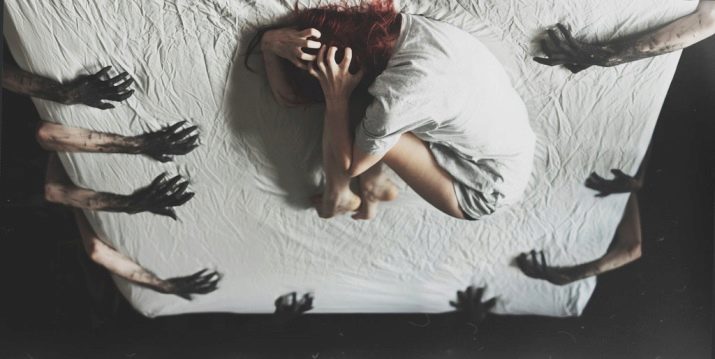
The cause of hypnophobia can be childhood experiences, for example, nightmares that the child often saw in a dream. In this case, the first signs of a phobic disorder appear even in childhood or during puberty. Often it is children's nightmares that become the main horror for an adult. He understands and realizes that these nightmares are unreal, illusory, but he can not do anything with fear - fear in this situation is stronger than a person.
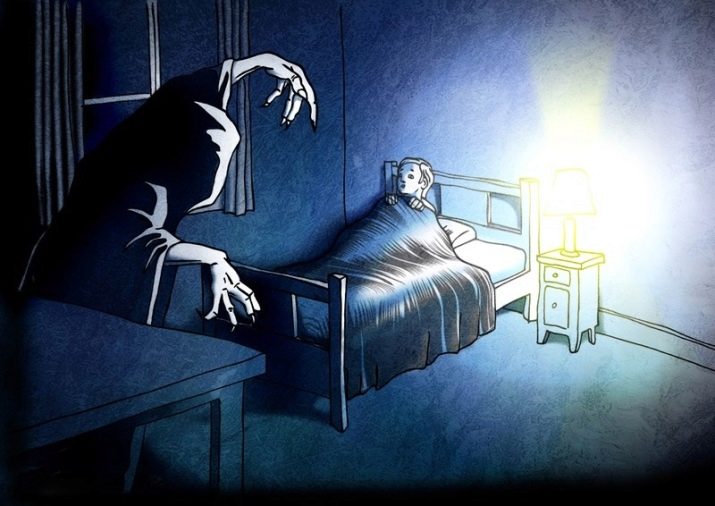
According to the observations of psychiatrists, children and adults with a vulnerable, sensitive and unstable psyche are more at risk of developing hypnophobia.
Very suspicious, impressionable, experiencing people with a high degree of empathy, prone to depression for any, even insignificant reason, having low self-esteem. Hypnophobia is often not the only symptom. Fear of falling asleep often accompanies a mania of persecution (a person delusionally convinced that they want to kill him, they are watching him, something is threatening him), schizophrenia.
People with predisposing features of a mental portrait can be impressed at any age (but more often in childhood) from watching a horror movie, thriller, reading a book, scary stories that children love to tell each other so much at night.
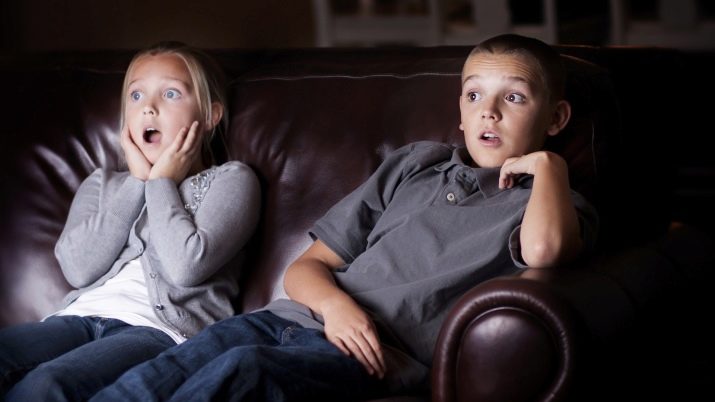
Experts describe cases of refusal to fall asleep due to fear of falling into a lethargic sleep and undergoing burial alive.
The reasons for the occurrence of hypnophobia also include personal negative experiences experienced in a dream, for example, a sharp awakening in childhood during a fire, a flood, after which a series of events began that affected the mental and emotional state of a person.
Often hypnophobia develops in a person who is predisposed to this because of the nervous system and nature, after communicating with other hypnophobia. The seizures of panic attack, horror, and justification of the reasons that cause a person to give up sleep, described by them, can make a strong impression, and it will become difficult to fall asleep gradually, since the obsessive idea of a possible danger will be a constant companion.
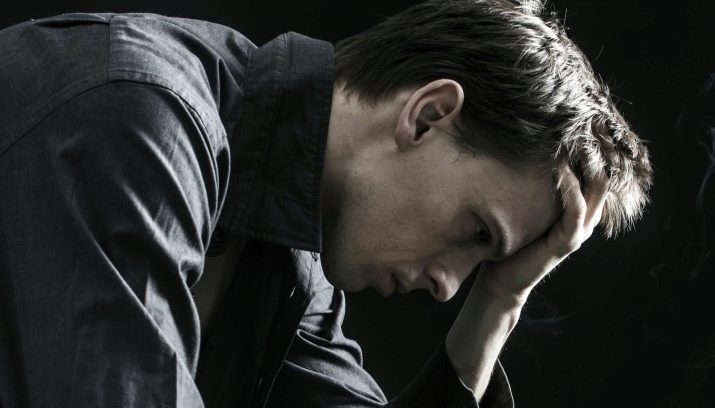
Symptoms
Symptoms of hypnophobia are numerous and directly depend on what disturbances the lack of sleep causes in the human body. At the same time, both the psyche and the physical condition suffer. In complex cases, panic attacks and anxiety are observed even when trying to talk about sleep, so an anxious neurosis manifests itself, which is very difficult to treat.
With fear of falling asleep, a person experiences rapid and shallow breathing, shortness of breath, moderate confusion, sweating increases sharply, there is a feeling of anxiety, dry mouth. The heartbeat becomes more frequent, signs of nausea may occur.
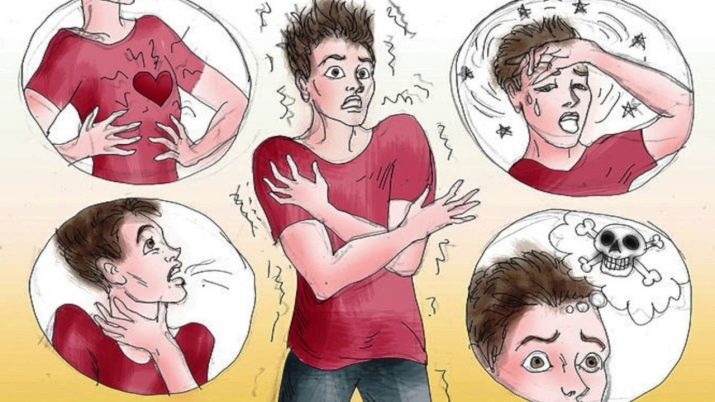
Given that the prerequisites that lead to the development of phobia are not fully understood, it is rather difficult to accurately diagnose hypnophobia. Psychiatrists are guided by objective signs (lack of desire to go to bed at night, in the afternoon), as well as the results of special tests for the level of anxiety.
How to treat?
In the initial stages, hypnophobia may be available for self-medication. Sometimes it’s enough to change your lifestyle, saturate it with movement, physical education, sports, so that the strength of fatigue after a day has been higher than the forces of fear. An interesting hobby that captures a person in the early stages of a phobic disorder helps reduce anxiety before falling asleep. Useful evening walks before bedtime (which is no reason to get a dog!), Swimming.

If hypnophobia is already running and long-term, then without the help of a psychotherapist or psychiatrist can not do.
At the same time, independent attempts to get rid of the phobia and defeat it are not successful. Psychotherapy sessions help to identify the causes and the formation of new settings that will help a person to perceive the process of falling asleep and sleep as favorable, necessary and positive. Simultaneous yoga, meditation, and teaching the patient methods of voluntary muscle relaxation will help. Hypnotherapy often has its place in the treatment - the results of new installations in hypnotic sleep can exceed all expectations. The doctor finds all the connections that give rise to fear, and replaces them with new, positive ones.
Thanks to this, the fear factor is either leveled or eliminated completely. The help of relatives who agree to sleep next to the patient during the treatment is also useful. You can get a pet that will sleep in the same bed with a hypnophobic - a cat, a small breed dog.A pet is especially recommended for those who are single. Psychotherapists often give the same recommendation in case of childhood hypnophobia.


It is difficult to treat the fear of falling asleep, and therefore the forecasts are ambiguous. The justifications for fear are deliberate, and the manifestations are acute, which is why close cooperation between the doctor and the patient is important.
